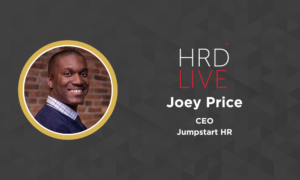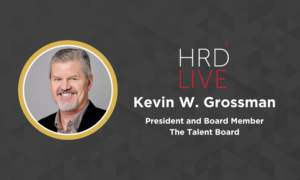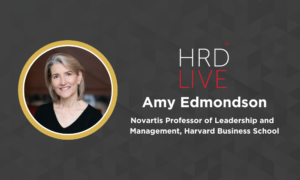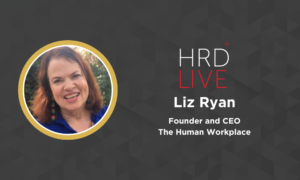Is your DEI&B strategy textured enough for the evolving work landscape?
- 5 Min Read
To cope with the rapidly evolving work landscape and labor shortage, organizations must take a textured view of DEI&B. Future of work strategist and author Heather E. McGowan joins the HRD Live podcast to offer an expert analysis of the changing business landscape and the need for belonging in the workplace.
- Author: Benjamin Broomfield
- Date published: May 24, 2023
- Categories
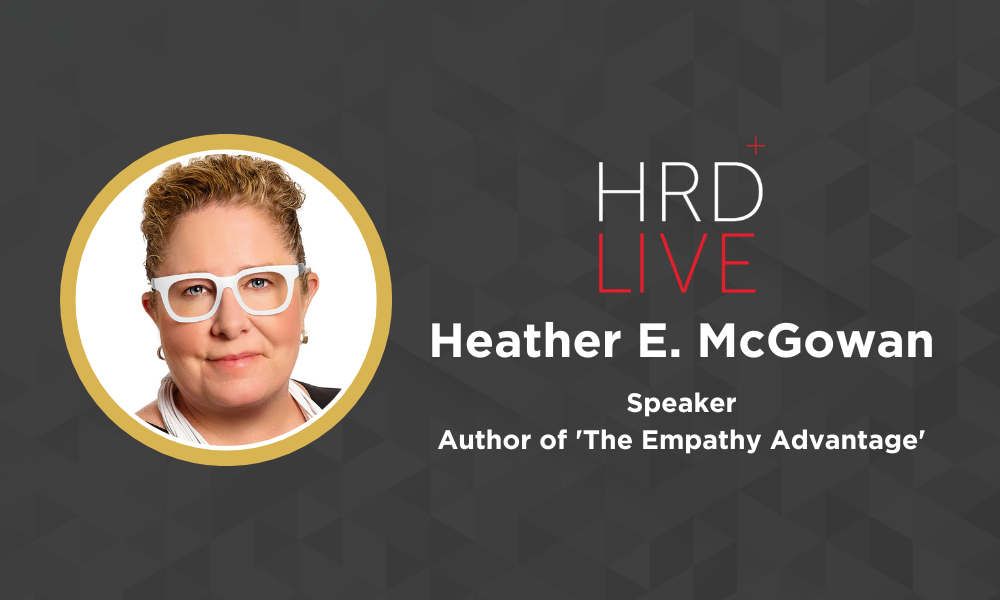
Podcast: Play in new window | Download
Subscribe: RSS
The diversity, equity, inclusion, and belonging (DEI&B) landscape has evolved significantly, accelerated by culturally significant moments such as the murder of George Floyd in May 2020. Vitally, DEI&B is now seen as a strategic business driver rather than simply ‘the right thing to do.’ This shift is embodied by a richer view of inclusion and belonging that supports organizations in the markets they serve, alongside the people they employ.
Heather E. McGowan, future of work strategist and author of The Empathy Advantage, is the latest guest on the HRD Live Podcast. In this episode, we examine the rapidly changing work environment. McGowan offers advice on how organizations can keep up to speed by taking a more textured approach to diversity, equity, inclusion, and belonging.
The role of HR and business leaders is changing
The way employees and organizations view DEI&B is changing. Beyond being seen as a strategic business driver, diversity is expanding beyond ever-important groups including culture, race, and diversity. Neurodiversity and social mobility are now added lenses that HR leaders must consider. People leaders, argues McGowan, must be leading the charge:
“How do we integrate capabilities like neurodiversity into a team? It’s not something we can solve by hiring someone with a certain profile. It’s, how do you hire them? What kind of jobs should they be doing? What’s their superpower?”
“It’s a matter of helping all of us play to our strengths. And recognize that the strengths don’t come in any one uniform package. They never did.”
The need for belonging in DEI&B
The terminology around diversity has evolved with the shift in employee expectations. Historically, diversity meant hiring underrepresented groups. Equity and inclusion followed to help these groups become successful and to create an environment where everyone feels included. DE&I leaders now incorporate belonging. McGowan describes this as “A feeling of psychological safety. It’s a feeling of trust.”
This creates an environment where employees do not self-censor and instead bring their full selves to work. Crucially, they feel safe and encouraged to use their voice whether that is in agreement or dissent.
To create belonging in the workplace, McGowan emphasizes the need for third-party support input: “It’s got to be done by a third party. It encourages people to tell you what they really think.”
Without the safety net of anonymity, employees become far more comfortable to point out the areas where their employers are falling short. A lack of understanding about attitudes across all demographics means organizations lose sight of what matters to their employees and customers.
Moreover, DEI&B helps to establish a culture of learning. “If you want your folks to be vulnerable enough to learn and adapt, you have to provide that psychological safety,” explains McGowan.
Tackling social mobility within DEI&B
McGowan also shares some quick wins for addressing social mobility. “Do we really need to put the degree out there as a barrier? Because that is a barrier as a social mobility binary. Can we reach out and look at somebody who hasn’t had this experience but could train and develop to succeed in this area?”
But whilst leading organizations are increasingly ditching degree-based hiring, McGowan argues this alone is not enough.
“This has been a big problem in DEI&B. Whether it’s race, culture-based or socio-economic, we hire people because they fit a DE&I profile but may be thinner on the experience than another candidate. “But if we don’t put the support in place for them to be successful, we’ll see that it didn’t work. We hired a diverse candidate, and they failed to perform well. We didn’t put the structure in place. So, you have to help folks be successful whatever their profile is.”
Addressing the labor shortage and preparing for future change
Staring into the headlights of a labor shortage in nearly every sector, McGowan emphasizes the need to partner with your workforce. “You want the inside of your company to look like the market you serve. And that is increasingly diverse across sexual orientation, race, culture, and gender. And if you look at Gen Z, they are the most educated generation we’ve ever had here in the US.”
“They’re also the most diverse, and they’re the most insistent in their opinions. They’re not checking their opinions at the door. They want to work for a company that believes what they believe.”
Timestamps
00:08 – Introduction
01:00 – How has the concept of DEI&B evolved over the years and why is it now seen as a strategic business driver?
01:38 – In what ways do you think this influenced the changing role of the leader?
03:21 – Could you define the term “belonging” in the context of DEI&B, why it matters, and how it can be measured?
06:16 – Can you provide some examples of how organizations are incorporating sexual orientation, gender identity, age diversity, and neurodiversity into their DEI&B strategies?
08:30 – How do social class and mobility factor into DEI&B, and what steps can organizations take to address these issues?
11:27 – Why is it important to include those other aspects of diversity for a more textured view of DEI&B in 2023 and beyond?
________________
Heather E. McGowan is one of the leading voices on the Future of Work. Her two most recent books on the Future of Work are The Adaptation Advantage: Let Go and Learn Fast to Thrive in the Future of Work (Wiley, 2020) and The Empathy Advantage: Leading the Empowered Workforce (Wiley, 2023). Heather gives people the courage and insight that illuminates their path forward.




